Product safety flaws 'exposed by Whirlpool danger dryers'
- Published
Is your tumble dryer at risk?
The saga over millions of fire-risk tumble dryers has exposed a wider failure in the UK's product safety system, according to MPs.
Whirlpool's response to the defect affecting 5.3 million machines had been "woeful", the Business Committee said.
It was unacceptable that more than one million potentially dangerous dryers were still being used in people's homes, the committee added.
The company said its repair campaign had been comparatively successful.
The defect in tumble dryers sold under the Hotpoint, Creda and Indesit brands, owned by Whirlpool, was discovered in 2015 and has led to at least 750 fires since 2004, the Business, Energy and Industrial Strategy Committee said.
The dryers had been sold over the course of 11 years in the UK.
Rachel Reeves, who chairs the committee, said: "Whirlpool's woeful response to the defect in its tumble dryers has caused huge worry to people with these appliances in their homes.
"Their delayed and dismissive response to correcting these defects has been inadequate and we call on Whirlpool to resolve issues urgently."
A spokesman for the company said: "Whirlpool's extensive ongoing tumble dryer modification campaign has achieved a resolution rate more than three times the industry average for a product recall."
He said 1.7 million affected tumble dryers had been replaced or repaired, four million customers had been contacted directly, and the number of people contacting the company after the two-year awareness campaign had now fallen sharply.
"We continue to urge consumers to contact us immediately if they believe they still own an affected appliance. We can assure consumers that if they contact us now, they can receive a resolution within one week," he added.
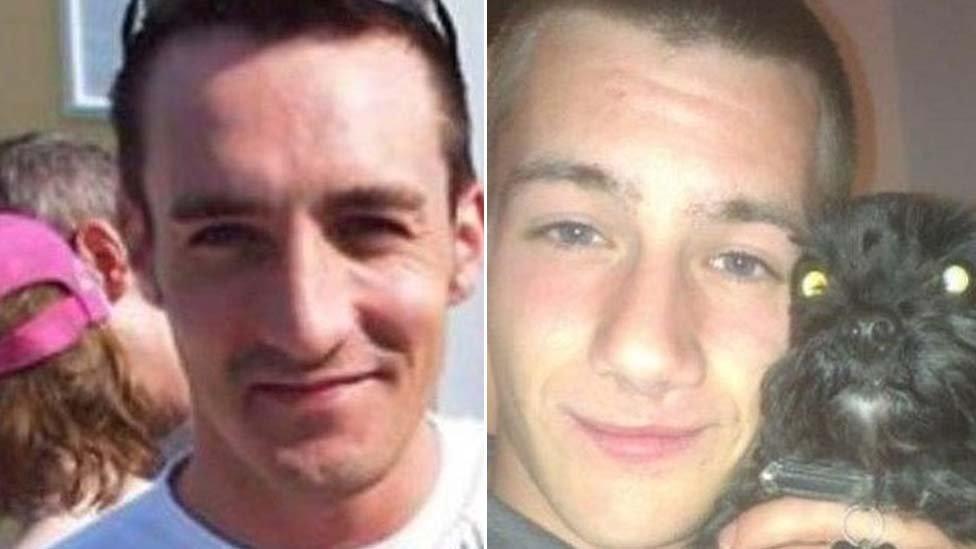
Doug McTavish and Bernard Hender died in the fire at the flat in Llanrwst
A separate electrical fault with the door switch on a Whirlpool dryer "on the balance of probabilities" caused a fire that that killed two men in north Wales.
The coroner in the inquests into the deaths of Doug McTavish and Bernard Hender in Llanrwst, north Wales, described evidence presented at the inquest by Whirlpool as "defensive and dismissive" and said the company's approach was an "obstacle" to finding steps to prevent future fires.
The committee considered this, and other high-profile fires such as Grenfell Tower, and concluded that there were wider issues over product safety.
In spite of improving technology and evolving regulation, the number of fires involving faulty electrical appliances and leads in England has stayed fairly constant, at between 4,300 and 5,000 a year, it found.
It said that there appeared to be significant risks associated with plastic-backed fridge freezers, owing to the number of fires associated with them.
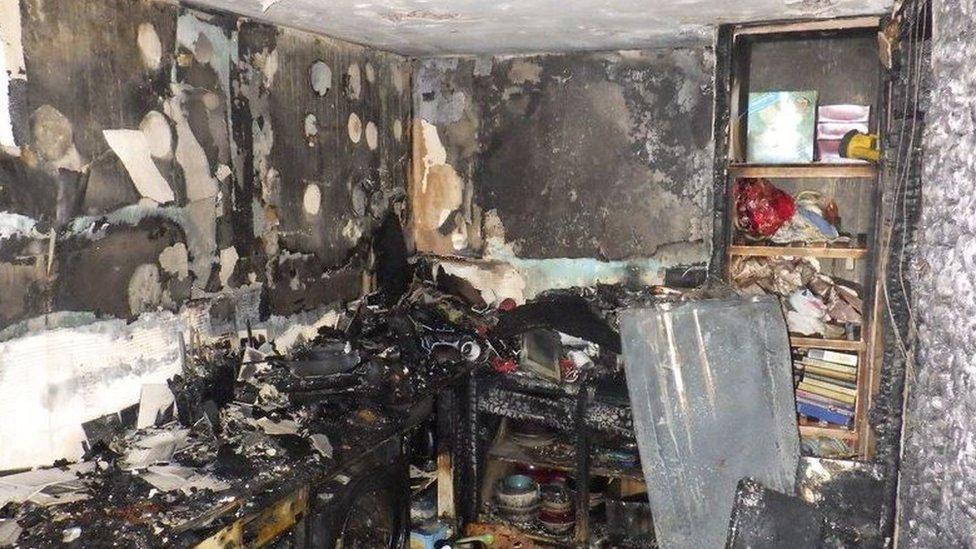
The damage caused to the seventh floor flat in Shepherd's Bush
Ms Reeves also said that there was "a strong case for a single national product safety agency".
"These problems go deeper than just one firm. Whirlpool's response has highlighted flaws in the UK's product safety regime which is fragmented and poorly resourced," she said.
She suggested that there had been "painfully slow" progress from the government in responding to an independent review two years ago by Lynn Faulds-Wood, which had suggested a national agency.
Ms Faulds-Wood told the BBC last year that she felt her report had been ignored by the government,
The Department for Business, Enterprise and Industrial Strategy, said it would "respond shortly" to the recommendation of a national product safety authority.
"We have already taken a number of steps to improve our product safety regime, including upgrading the government's recalls website to make it clear to the public which white goods are safe to use," a spokesman said.
But Alex Neill, from consumer group Which?, said: "Despite hundreds of reported fires and numerous reviews, the UK's product safety system is still broken and potentially threatening the lives of millions of consumers."
Martyn Allen, of charity Electrical Safety First, said: "Given the low success rate of product recalls, and that only 10% to 20% of faulty goods are ever returned or repaired, there are potentially millions of dangerous electrical goods still in people's homes.
"Without a centralised, publically available database that lists all UK product recalls, it is extremely difficult for consumers to actually know if the products they are using are safe."
Whirlpool freephone helplines: 0800 151 0905 in the UK and 1800 804320 in the Irish Republic
- Published16 January 2018
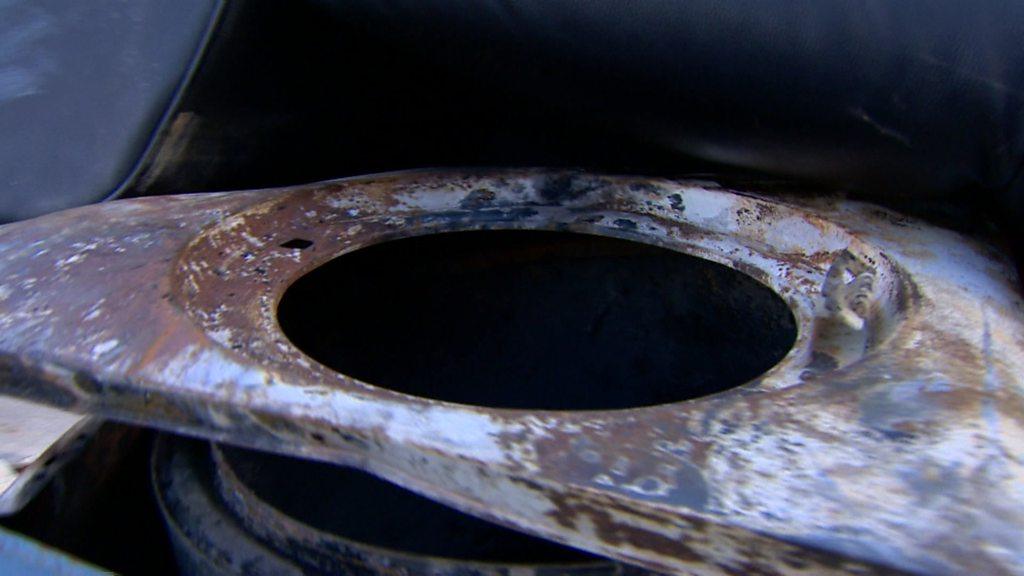
- Published11 October 2016
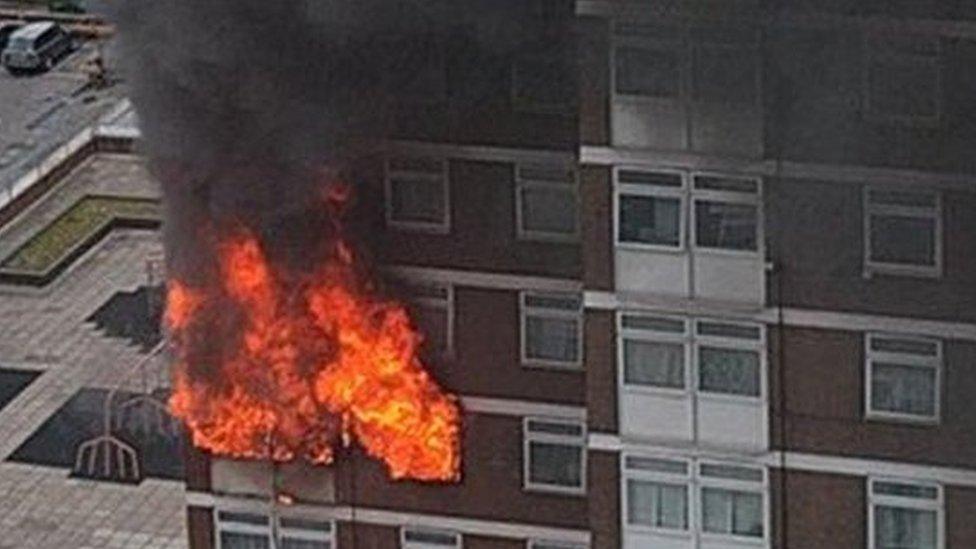
- Published2 September 2017

- Published2 December 2017
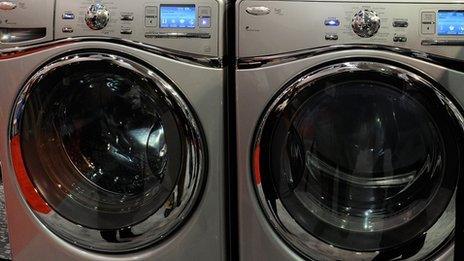
- Published19 June 2017
